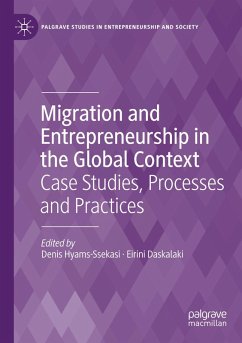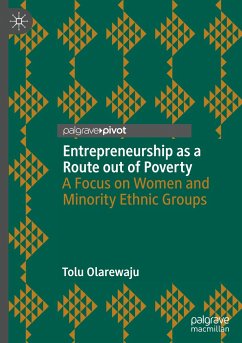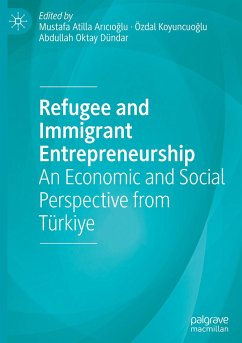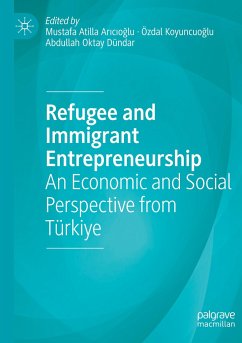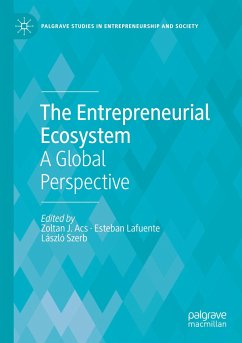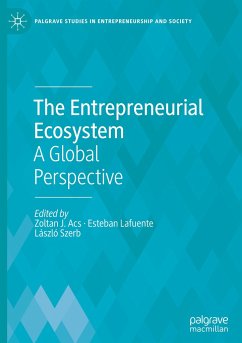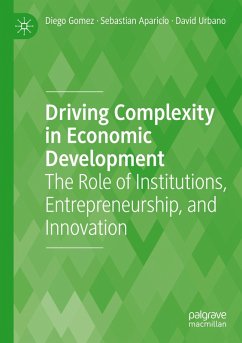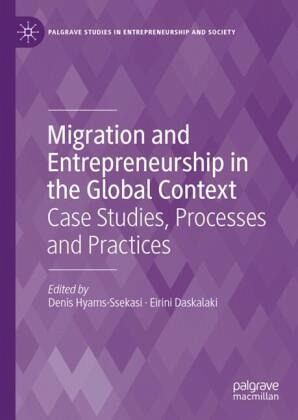
Migration and Entrepreneurship in the Global Context
Case Studies, Processes and Practices
Herausgegeben: Hyams-Ssekasi, Denis; Daskalaki, Eirini

PAYBACK Punkte
61 °P sammeln!
Presenting a collection of case studies on immigrant and migrant entrepreneurship, this book offers an understanding of the phenomenon as a creation of a distinctive labor market that leads to innovation, productivity, and economic growth. As such, it contributes to SDG 8: 'Promote sustained, inclusive and sustainable economic growth, full and productive employment and decent work for all.'Reflecting on the increasing interest in the subject, contributors provide new perspectives of migrants in diaspora, thus offering a better grasp of lived experiences. Chapters explore the common adversities...
Presenting a collection of case studies on immigrant and migrant entrepreneurship, this book offers an understanding of the phenomenon as a creation of a distinctive labor market that leads to innovation, productivity, and economic growth. As such, it contributes to SDG 8: 'Promote sustained, inclusive and sustainable economic growth, full and productive employment and decent work for all.'
Reflecting on the increasing interest in the subject, contributors provide new perspectives of migrants in diaspora, thus offering a better grasp of lived experiences. Chapters explore the common adversities that immigrant entrepreneurs face, such as the lack of knowledge in terms of operations of the host country market, dealing with unfair treatment, and the subsequent challenge of building long term relationships with locals. Focusing on individual migrant entrepreneurship cases and the recurrent challenges that such entrepreneurs encounter, many of the chapters are written by academics who are migrants with entrepreneurial experiences, which brings a unique insight into the topic.
Exploring issues such as gender and enterprise, family business, and entrepreneurial activities, this distinctive collection provides a comprehensive overview of varied experiences of migrant entrepreneurs in both developed and developing countries.
Reflecting on the increasing interest in the subject, contributors provide new perspectives of migrants in diaspora, thus offering a better grasp of lived experiences. Chapters explore the common adversities that immigrant entrepreneurs face, such as the lack of knowledge in terms of operations of the host country market, dealing with unfair treatment, and the subsequent challenge of building long term relationships with locals. Focusing on individual migrant entrepreneurship cases and the recurrent challenges that such entrepreneurs encounter, many of the chapters are written by academics who are migrants with entrepreneurial experiences, which brings a unique insight into the topic.
Exploring issues such as gender and enterprise, family business, and entrepreneurial activities, this distinctive collection provides a comprehensive overview of varied experiences of migrant entrepreneurs in both developed and developing countries.





